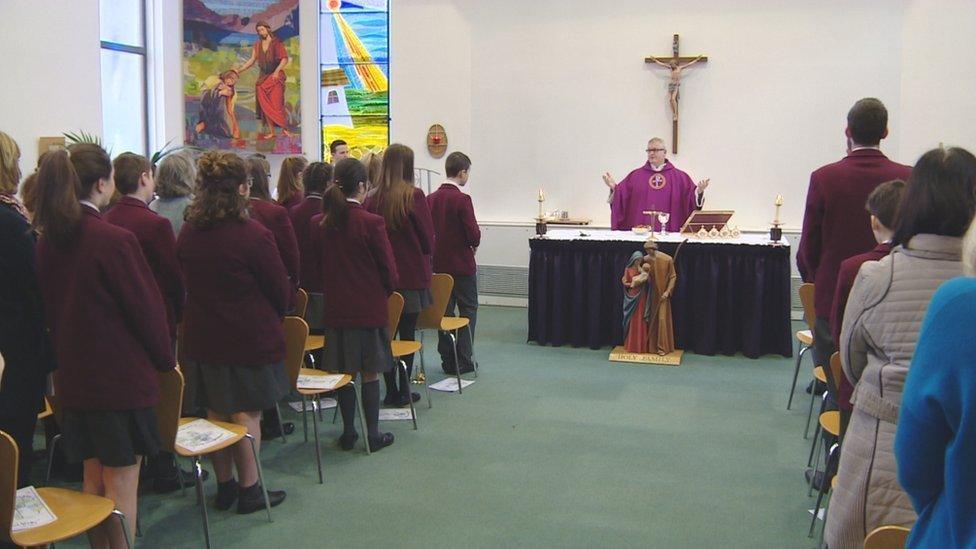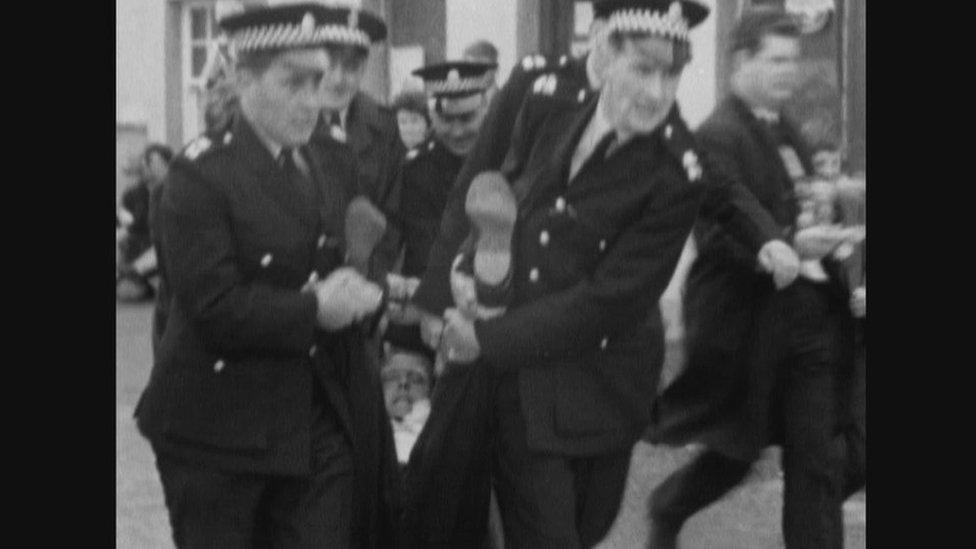Humanists call for end to religious influence in schools
- Published

Denominational schools have the legal right to present religious education to pupils under legislation almost 100 years old
The role of religion should be removed from the school curriculum, according to a humanist organisation.
A report commissioned by the Humanist Society of Scotland (HSS) said the position of religion had weakened in most areas of life in recent years.
But it said laws protecting religion in education had, if anything, been strengthened.
A Church of Scotland spokesman said religious groups from all faiths made appropriate contributions to education.
The 355-page HSS report, written by academics at Glasgow University, cited the growth of Sunday trading and the rise in popularity of non-religious marriages as evidence Scotland was becoming a more secular society.
HSS chief executive Gordon MacRae said: "The motivation for this commission came from the increased public and political awareness of the changing role of religion and belief in Scottish public life."
Debate call
He added: "At a time when 47%, nearly one in two households in Scotland, say they have no religion, we think it is time to move to a secular education system.
"Every state school in Scotland is a faith school. We hope this document can be a catalyst for a new debate."
The report said the current education system was established by two Acts of Parliament in 1872 and 1918, when Catholic schools were absorbed into the state system.
All state schools are required to ensure all pupils take part in 'religious observance' - at least once a week for primary pupils and at least once a month for secondary schools.
These provisions were reinforced in 2004 by the Labour-Liberal Democrat coalition, and accepted in a government circular in 2011 under the SNP.
The report outlines other areas in which the position of religion is guaranteed by law in the education system:
Appointment of 'religious representatives' on local authority education committees
The General Teaching Council of Scotland (GTS) is required to include one member from Church of Scotland and one from the Roman Catholic Church in its 11-strong council
Parent councils at denominational schools required to co-opt one representative of the denominational body.
One of the report's authors, Callum Brown, professor of Modern European History at Glasgow University, said: "There is no particular move at foot to change this, in comparison to changes, dramatic changes to marriage law, with the arrival of same-sex marriage in 2014.
"That was a phenomenal and ground-breaking change which doesn't seem to have an equivalent in relation to education."

The Sabbatarian movement led to arrests in 1966 when Sunday ferry sailings between the mainland and the Isle of Skye began
The HSS said the growth of Sunday trading in recent years and the failure of Sabbatarian groups to prevent the development of ferry and air services to Presbyterian strongholds such as the Western Isles had also shown the weakening of the position of religion in Scottish life.
But Prof Jane Mair, of Glasgow University Law School, another co-author of the report, said laws concerning religion in schools had not shifted.
She said: "Although the idea of religious education focuses to a great extent on the idea of custom, we haven't gone back to look at the changing custom in society.
"There is still an expectation that people want a particular type of religious education, but perhaps we haven't, a society, really reviewed how that has changed."
The Very Rev John Chalmers, principal clerk to the Church of Scotland General Assembly, agreed there had been a decline in religious influence in society.
But he said it was not true to say the influence of religious groups in education was being strengthened.
He told BBC Scotland: "It was, after all, the church which put education in place, in every parish in Scotland.
"The influence couldn't have been greater in those days. Now the church is invited to participate where appropriate to participate in religious reflection in schools.
"It doesn't force that down anybody's throat. It is there, if invited, and it's there to contribute alongside other faiths and others from the ecumenical spectrum."